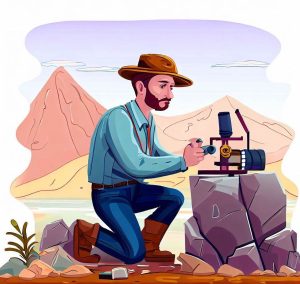Interested in a multifaceted and ever-changing career within the STEM fields? Think about becoming a geologist. This role within STEM provides a broad spectrum of specializations and investigative areas. As a geologist, you’ll delve into the mysteries of Earth’s structure, from mineral compositions deep underground to vast landscape formations. Whether you’re intrigued by seismology, mineralogy, or any of the various other geological disciplines, there’s a specialized area for you. Moreover, a career in geology enables you to contribute to significant scientific studies and the sustainable management of natural resources. If you’re captivated by the complexities of our planet and are keen to contribute scientifically, a career in geology might be your perfect fit.
Check out our knowledgebase for more information. Are you looking for your dream job in STEM? Look here.





